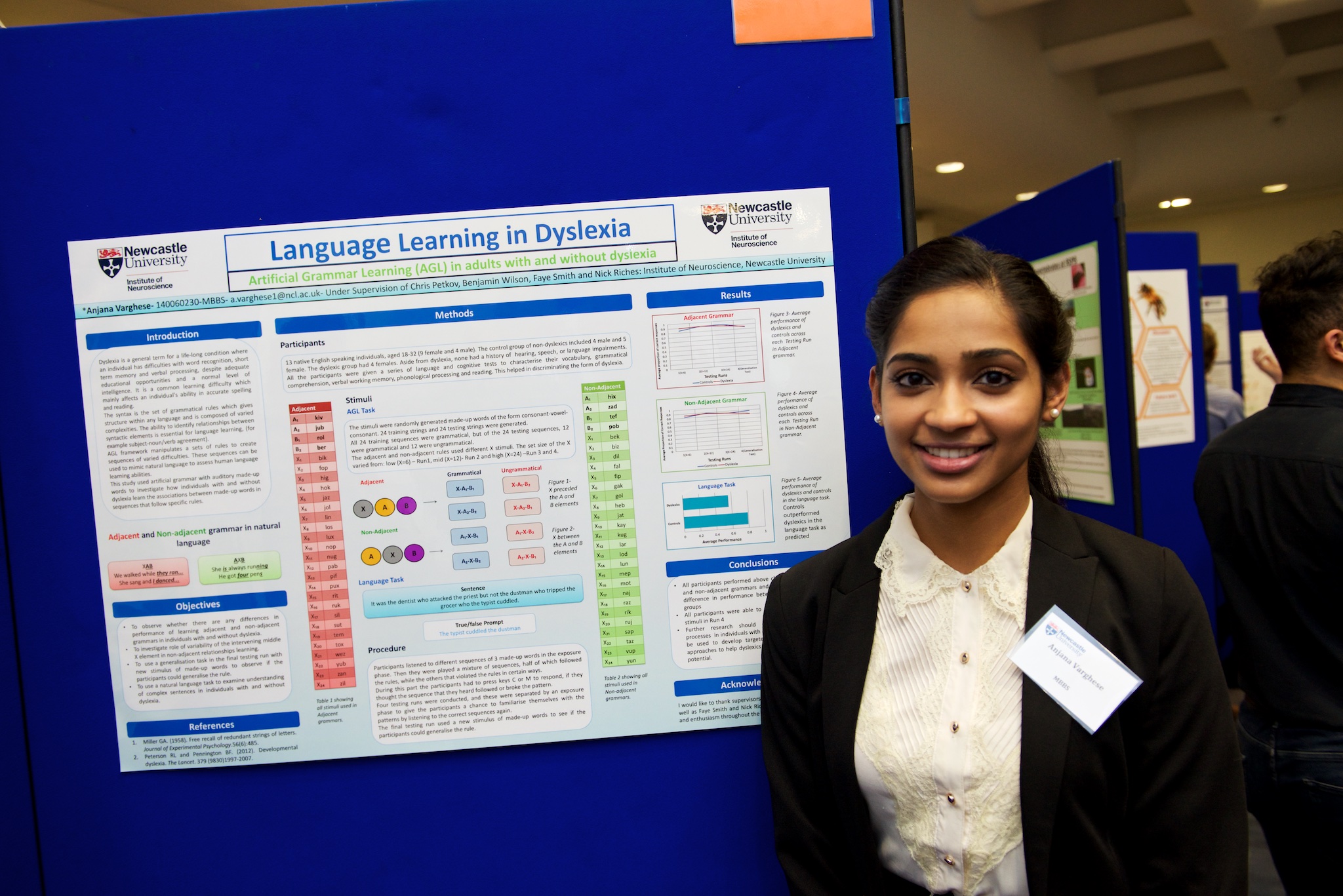2016 Participants
 Anjana Varghese
Anjana Varghese
Dyslexia is a general term for a life-long condition where an individual has difficulties with word recognition, short term memory and verbal processing, despite adequate educational opportunities and a normal level of intelligence. It is a common learning difficulty which mainly affects an individual's ability in accurate spelling and reading.
The syntax is the set of grammatical rules which gives structure within any language and is composed of varied complexities. The ability to identify relationships between syntactic elements separated by other components is essential for language learning, (for example subject-noun/verb agreement). Artificial Grammar Learning (AGL) framework manipulates a sets of rules to create sequences of varied difficulties. These sequences can be used to mimic natural language to assess human language learning abilities.
This study used artificial grammar with auditory made-up words to investigate how individuals with and without dyslexia learn the associations between made-up words in sequences that follow specific rules.
Funding source: Newcastle University
Supervisor: Prof Chris Petkov
